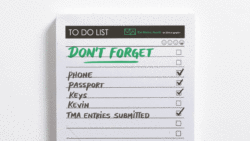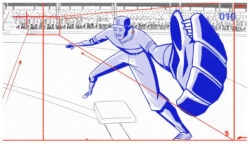 Photo by Kecko
Photo by Kecko
Recently, we posted a review of Frank, an online tool that facilities the holding and booking of freelance talent. In the comments, though, many readers diverged from talking about the software and engaged in a spirited discussion about the hold system in general.
(What’s the hold system? Read this.)
Several readers suggested that we highlight some of the arguments around the hold system, so that’s exactly what we’re doing here. Following are snippets from the original comment thread.
Defining the Problem(s)
sistarr:
I go along with the hold system begrudgingly, but I really despise it, especially when post-houses abuse it by putting five to 10 people on hold just for the sake of having them available.
Also, I just don’t like the idea that I need to get “permission” from someone else to take a job. Book me or don’t book me or pay me a fee for the inconvenience of being on hold.
monovich:
In the end I think the system will always be somewhat Darwinian. Producers hold the cards/weight in the booking negotiation much of the time, but if you can advance to the point in your career where you hold some quality/dependability cards, you can negotiate things like holds/bookings on a more even playing field… and you can tell them, “Call me back when the project is 100 percent.”
Bran Dougherty-Johnson:
The hold system as currently being practiced isn’t really working. What was once a system of gentleman’s agreements is now a death race. Companies should really rethink their habit of using production coordinators to try to blanket hold freelancers for two- or three-month stretches.
And I fully agree with the idea of either retainers or deposits for holds. If there’s no penalty for putting a hold on a freelancer and then just dropping it without letting them know, producers will just keep doing it. It’s sort of like overtime, which is intended to discourage the employer from abusing the worker.
mattonium:
Holds can work out fine, if used honestly. Unfortunately, in this business they seldom are. I’ve been put on hold for jobs that don’t exist, put on hold to “be in the mix,” put on hold for a month only to find out they need you for a week, etc.
Holds Around the World
sk:
Maybe it’s because the industry is a bit smaller in the UK, but in my (limited) experience, producers have nearly always either booked my time or not. When I have been put on a “pencil,” as they seem to call it here, I’ve always been confirmed later, and from memory I think there was an implicit understanding that I reserved the right to not be available — they weren’t booking me so I wasn’t “booking them in.”
ThatGuy:
I’m working in the New Zealand motion graphic industry, and it looks like we have a similar system to the UK where freelancers are “penciled-in.” There is an understanding that, unless we are paid for our services to be retained, we are still able to look for and accept other work. A first-in-first-served policy, pure and simple.
The Producer’s View
producer25:
As a producer I’m not sure what the issue is for putting someone on hold. If I call a freelancer, I ask them if they are available and either FIRM book them or HOLD for the time period. If someone else is looking to book the freelancer if I have them on HOLD, then it’s up to me to book or release the hold.
That Old Trick
alba:
And regarding the hold system, it is sort of broken but it’s lazy and selfish for producers to blanket hold anyone for weeks/months without a specific project in mind. This might be great for newer artists trying to develop relationships, get experience. But for the ones who’ve been doing this for a while, it becomes conversational diplomacy, where the artist has to politely decline the blanket hold while not upsetting the relationship.
Why is anyone talking about third and fourth holds? Doesn’t everyone know the old trick by now?
Maybe Not?
Many readers refer to the practice of always reserving your first hold for yourself. This, of course, is not something you’d tell the producer. But it gives you, the freelancer, the freedom to choose your jobs. You can place subsequent offers as third or fourth holds — in theory at least.
In response to that idea, bfarn says this:
I’ve found that very few producers are willing to put me on a fourth hold, or even follow their own rules. As a (fortunately busy) freelancer, I know it gets very hairy dealing with half a dozen noncommittal studios at a time. Nobody’s willing to book, nobody wants to be anything but my first hold, nobody returns e-mails in a timely manner, nobody gives a straight answer.
What’s Your Take?
Are holds a problem for you? If so, which solution is the most viable? Hold fees, retainers, or some kind of collective bargaining?
Please keep the discussion going in the comments below. This is clearly an issue that affects thousands of people on both sides of the table.




